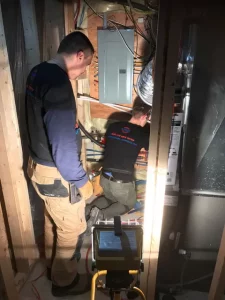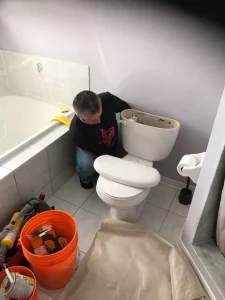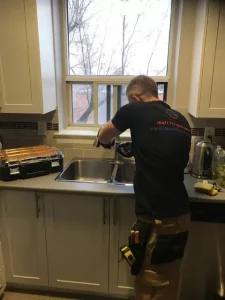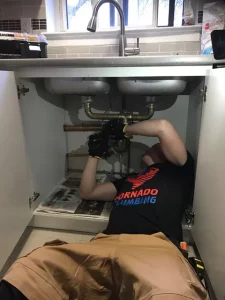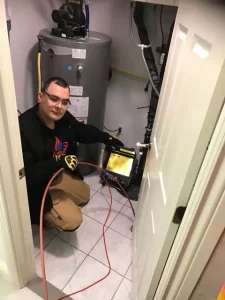Sewage Smell
Plumbing Problem: Sewage smell
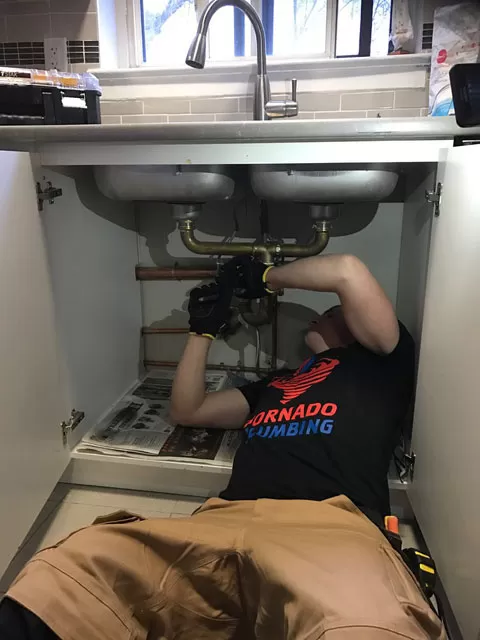
A blocked drainage system can cause unpleasant odors. Though, the situation is occasionally broader and far more severe than that. Anyway, think about acting immediately if you encounter a sewer smell in a bathroom or in any other place. All the causes vary from a dry and nonfunctional P-trap to a damaged ventilation. In case one, the solution is obvious and quite simple – just guttering some water into the pipe by opening the faucet. Case two demands thorough attention of an expert.
Make an attempt to detect the source of musty odors, reminding of a sewage smell in your house, by following this guide. Here are some useful tips on troubleshooting the issue. Let us remind you, however, that there exist some cases when you will not be able to do anything for repairs on your own. Only the qualified work of an expert can improve the situation.
- 100% Customer Satisfaction
- 25 Years NO LEAKS Guaranteed!
- Licensed and Insured
- In Business since 2014!
- Over 800 positive reviews
- Solutions for every budget
A situation with your floor drains sometimes turns out rather unpredictable and you start asking questions like ‘Why does my floor drain smell like sewage?’ Everything is quite simple to explain. This drain is usually built in the floor for trapping the excess water and utilizing it to seal up the drainage system. Due to it, a sewer gas is blocked from penetration into the house. Nevertheless, this drain is normally utilized rather rarely so it dries up over some time. Therefore, the harmful gas is allowed into the space and stinks it over. The way out is very simple – just pour water down the drain. It will help reseal the pipe and the awful sewage smell will get away. Opt for adding some fresh-scent cleaner used in the household to make the odor more pleasant.
You may also wonder why your basement smells like sewage after rain. It happens because a sewer gas is released and penetrates the house. Sewer gas is a substance produced by all the waste products drained down the pipe. This gas can be toxic or non-toxic depending on the products that cause its appearance. The mixture of sewer gases can contain such hazardous elements as ammonia, sulfur dioxide, or hydrogen sulfide that are very harmful for health. When the smell like that appears with the rainstorm, you may experience severe plumbing issues. We have also considered some other problems that can lead to the sewer gas release in this article.
Other Issues:
Poor Sewer Lines. They may be damaged badly. It means that you are about to face the leak soon or you are already having this leak without being aware of that. The waste water just flows uncontrolled into the soil laying its way to the sump pit and causing sewage smell.
Wrong Ways of Utilizing Ejectors & Pumps. The other reason why the sewer gas may appear is an issue concerning your ejector pit. It is usually present in basements equipped with the overhead sewer lines. This ejector pit should be covered properly, vented, and cleaned regularly so that it can hold the waste water without any unpleasant outcomes. If something goes wrong with ventilation, sealing, or the lid is just missing, sewer gases are ready to spread over your basement and farther into your house.
The most smelly place in your home, of course, is not a toilet. A sewage smell usually comes from the bathroom when it is equipped with a shower. It means that something is wrong with the shower drain.
The nasty odor from the bathroom and shower tub can be caused by two different factors. You may just get the biofilm collected in the pipes or something has happened to the P-trap.
Biofilm is built up when the drain is clogged. It starts moving water very slowly and creates perfect conditions for all the decomposing debris stuck in the pipes to be mixed with bacteria. This solid build-up can get clung to the walls of pipes and cause all the further issues. So, if you have noticed that your shower drain is too slow, the first step on your part is to unclog it. And, of course, taking measures for bacteria killing is mandatory. You may opt for manual cleaning or using some drain chemicals, or even for both.
The most severe issues can be caused by hair that builds up in the shower pipes. A lot of hair can easily trap other debris and the favorable environment for bacteria thriving is created. That is why, after you have managed to get rid of hair clogs in the shower drain, clear the pipes out from bacteria. You can use the same method as for eliminating the mold. Just use hot water, baking soda, and vinegar.
However, you need to know what material your drain pipes are made of. If it is standard PVC, you can cause some damage with the boiling water. You may also know nothing about the material used in the pipes. So, in both cases, or if you are not sure about the quality of your pipes, do not use the water that is hotter than 150 degrees F. Take about a full bowl of hot water and pour it down the pipe. You need to do it very slowly to make the procedure more effective.
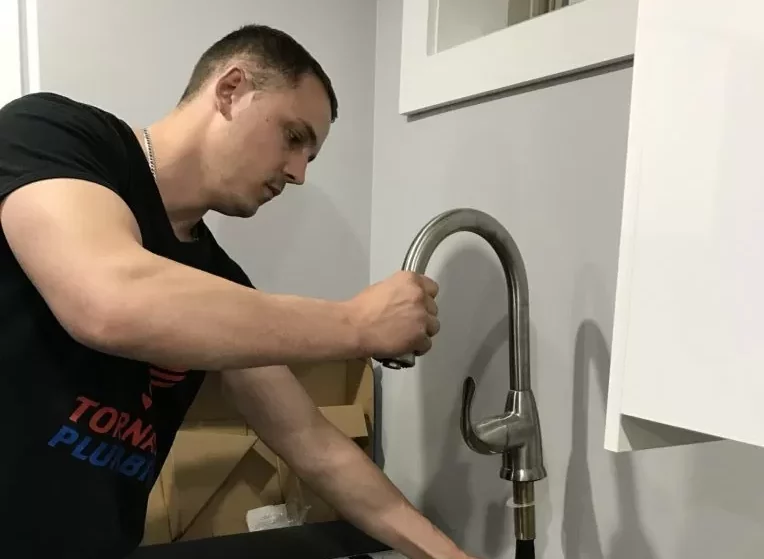

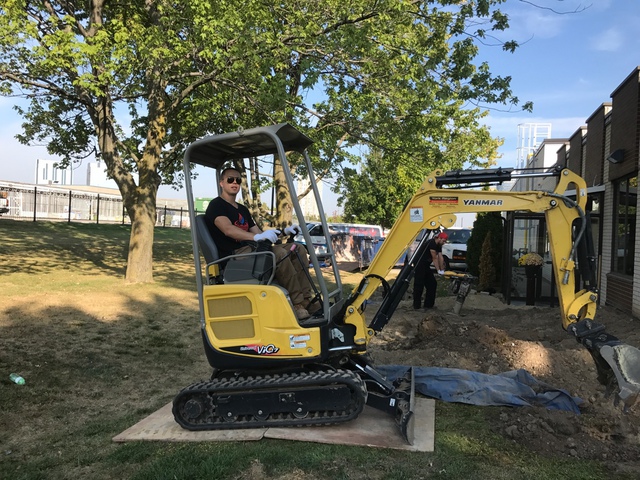
OUR GUARANTEE
Reputable and Licensed team for your next project!
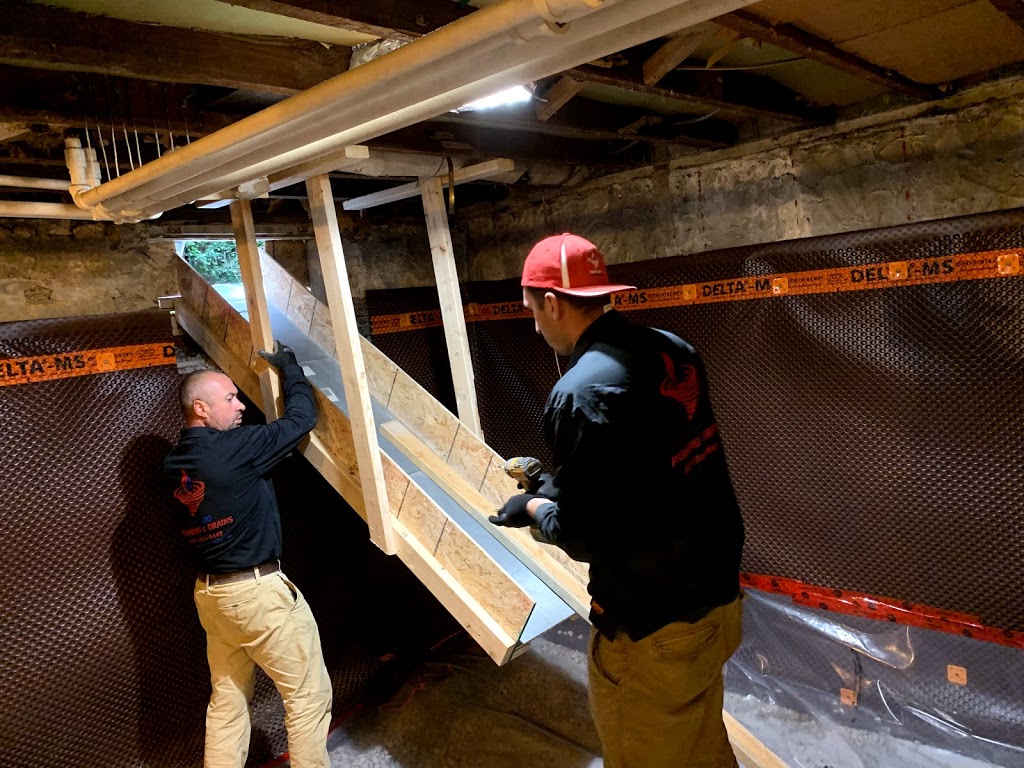
- Guaranteed best price!
- Job completed on time!
- Licensed and Insured Company!

Serhiy Marunchuk
Company Owner
OUR TESTIMONIAL
Real reviews, from real people. Read our google reviews and understand why Tornado-Plumbing is a great choice for all your plumbing needs.




Recent Blog Articles
Signs You May Need to Have Your Drains Cleaned
When was the last time you checked the condition of your drains? For most people, arranging an inspection of their property’s drainage network is low on their list of priorities – which is a shame! Over time, it’s almost inevitable that detritus will build up in your drains, eventually leading to an unwanted blockage. […]
Things to Look For When Hiring a Plumber
We have all heard horror stories of plumbers who show up, make the problem worse, charge an arm and a leg, and then mysteriously vanish. Nobody wants to flush money down the toilet like that (no pun intended), so how can you avoid it? This article discusses how to hire a quality plumber, the questions […]
The Benefits of Hiring a Professional Plumber
Nobody wants to pay out more than they need to resolve plumbing issues. As a result, many homeowners decide to fix leaks or other defects themselves, hoping to save money. Unfortunately, DIY plumbing solutions frequently create more problems than they solve. In the long term, the cost of the structural damage and inconvenience caused by […]

